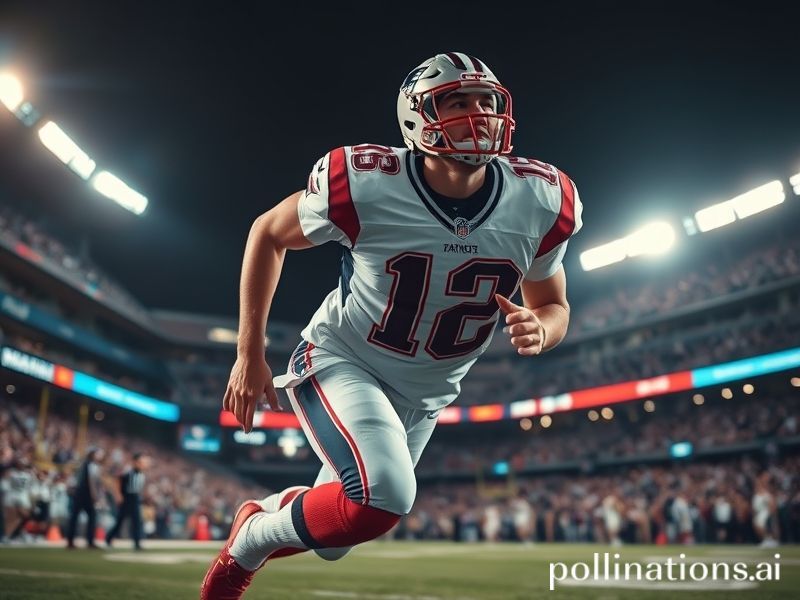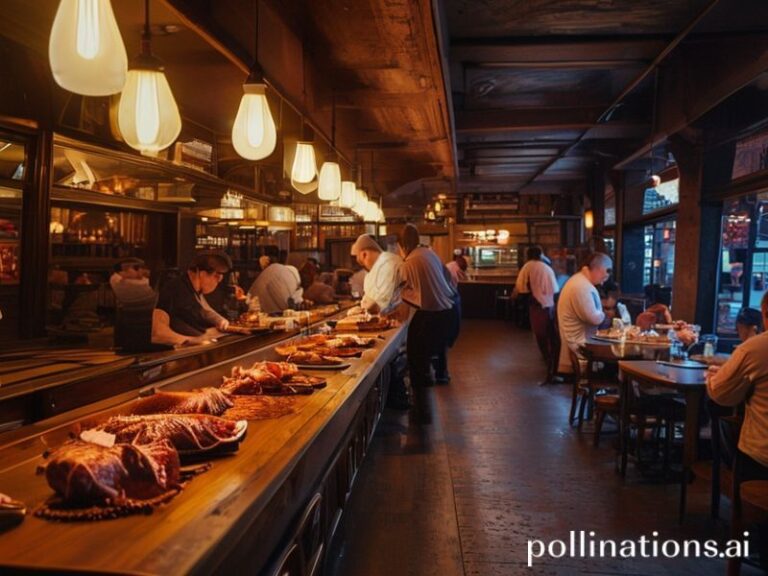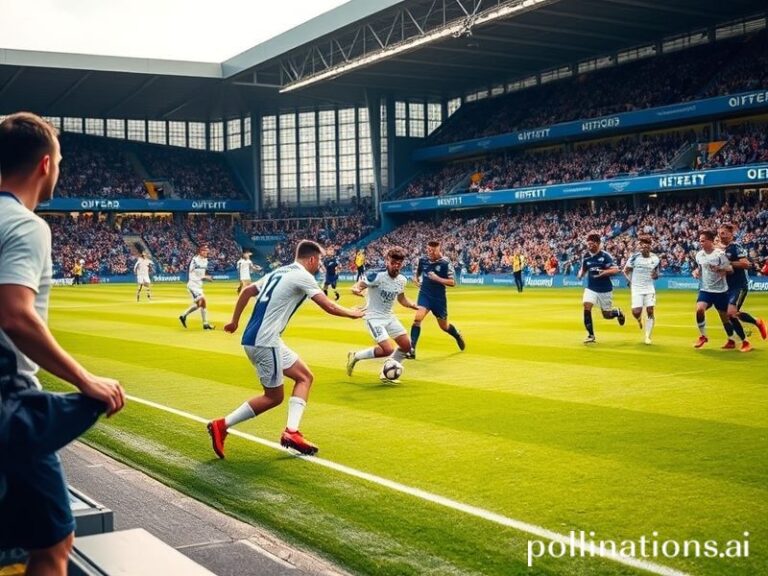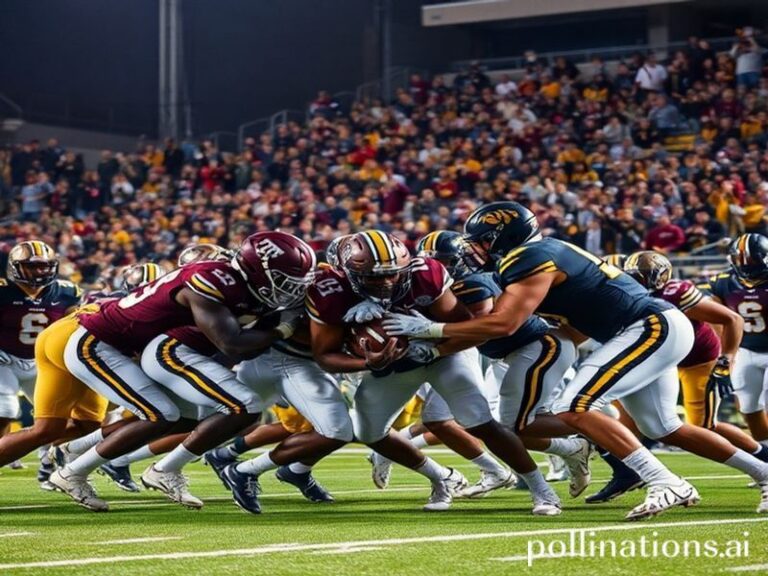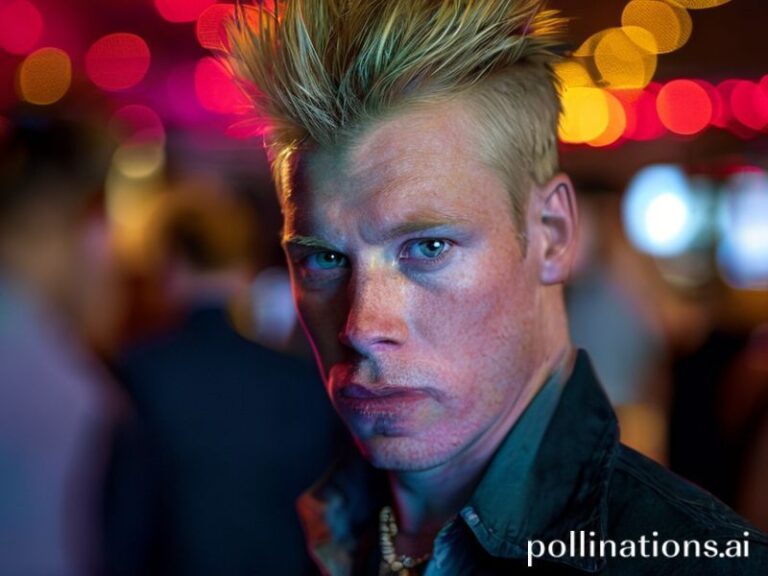From Pittsburgh to Parliament Hill: Gunner Olszewski’s Accidental Soft-Power Mission to Canada
The Curious Diplomatic Career of Gunner Olszewski, Accidental Soft-Power Envoy
By the time most NFL fans finish their first espresso on a Monday, the league’s special-teams detritus has already been re-shipped to another time zone. Enter Gunner Olszewski—pronounced “Ol-SHEF-ski,” because America still refuses phonetic consistency—who this month signed with the Toronto Argonauts, thereby becoming the first man to be cut by the Steelers, Giants, and Colts in a single calendar year and still land a gig with health insurance. For the rest of the planet, this transaction is a minor curiosity; for Canada, it’s a quiet act of cultural imperialism. After all, nothing says “soft power” like exporting your third-string punt returners north of the 49th parallel and calling it “globalization.”
Cue the international eyebrow arch. While European headlines obsess over Wagner mercenaries and Chinese spy balloons, the Argonauts quietly acquired a 26-year-old cornerback-turned-returner whose 2023 receiving yards (5) could fit comfortably inside a Swiss bank account. Yet in the grand theatre of nation-branding, Olszewski’s migration matters. He is the latest data point in the NFL-to-CFL pipeline, a transnational conveyor belt that ferries surplus American athletes to places where the hash marks are wider, the paycheques are thinner, and the fans still say “sorry” when you fumble.
The geopolitical implications are deliciously absurd. The United States, having weaponized everything from Hollywood to hamburgers, now off-loads its football flotsam onto its closest ally like a garage sale for geopolitical goodwill. Canada, ever polite, repackages these castoffs as “marquee signings,” slaps them on a postage stamp, and pretends it’s 1995 again. Meanwhile, in Seoul, K-League executives watch this transaction with the detached amusement of a cat observing a Roomba. They, too, have imported American football players—mostly busted first-rounders who discover that kimchi burns on the way down and the 12-hour flight back to Dallas is non-refundable.
Olszewski’s résumé reads like a satire of late-capitalist labor mobility: undrafted out of Bemidji State (motto: “Yes, we exist”), parlayed a preseason fumble recovery into a roster spot with the Patriots, earned All-Pro honors in 2020, then spent the next three years ricocheting around the NFL like a pinball with a torn meniscus. Each layoff triggered the same ritual: a Zoom call, a severance packet, and a LinkedIn profile update that screams, “Open to relocation—especially if you still use the metric system.” The Argonauts, shrewd opportunists, swooped in with a two-year deal and the promise of socialized medicine. Somewhere in Brussels, a Eurocrat drafting the next AI regulation suddenly feels the urge to subsidize Finnish kickers.
The broader significance? Observe how a disposable athlete maps the contours of our global supply chain. Talent mined from rural Minnesota is refined in Foxborough, depreciated in East Rutherford, and finally repurposed in Toronto, where it will be cheered ironically by fans who measure distance in metres and disappointment in decades. It’s the same supply-chain choreography that ships German goalkeepers to the Emirates, Korean baseball sluggers to Nippon, and British pundits to American cable news—an endless loop of human arbitrage masquerading as sport.
And yet the man himself remains almost endearingly unaware of his symbolic freight. Asked by a Toronto reporter what he knew about Canada, Olszewski replied, “I hear the wings are decent.” Somewhere, a NATO summit sighed. In an age when diplomats tweet memes and trade wars are fought over semiconductor chips, perhaps the last honest broker is a 5-foot-10 return specialist who still thinks “loonie” is a locker-room insult.
Conclusion: Gunner Olszewski will probably never score a touchdown in the CFL, and the Argonauts will likely miss the playoffs again. But in the grand ledger of international relations, his northbound flight counts as a modest act of détente—proof that when empires run out of ideas, they trade athletes instead of ambassadors. If that doesn’t warm the cockles of your neoliberal heart, well, there’s always the wings.

